Vocabulary expansion Normal Two Letter Phonics Worksheets for Ages 7-9
6 filtered results
-
From - To
Enhance your child's vocabulary with our engaging vocabulary expansion worksheets designed specifically for ages 7-9. Our Normal Two Letter Phonics Worksheets provide a fun and effective way for young learners to master phonics while developing their vocabulary skills. Each worksheet focuses on two-letter phonics combinations, helping children build word recognition and pronunciation. These interactive exercises foster a love for reading and strengthen language abilities through captivating activities. Ideal for home or classroom use, our resources make learning enjoyable and rewarding. Boost your child’s literacy journey today with our expert-crafted, age-appropriate phonics worksheets that combine education with fun!
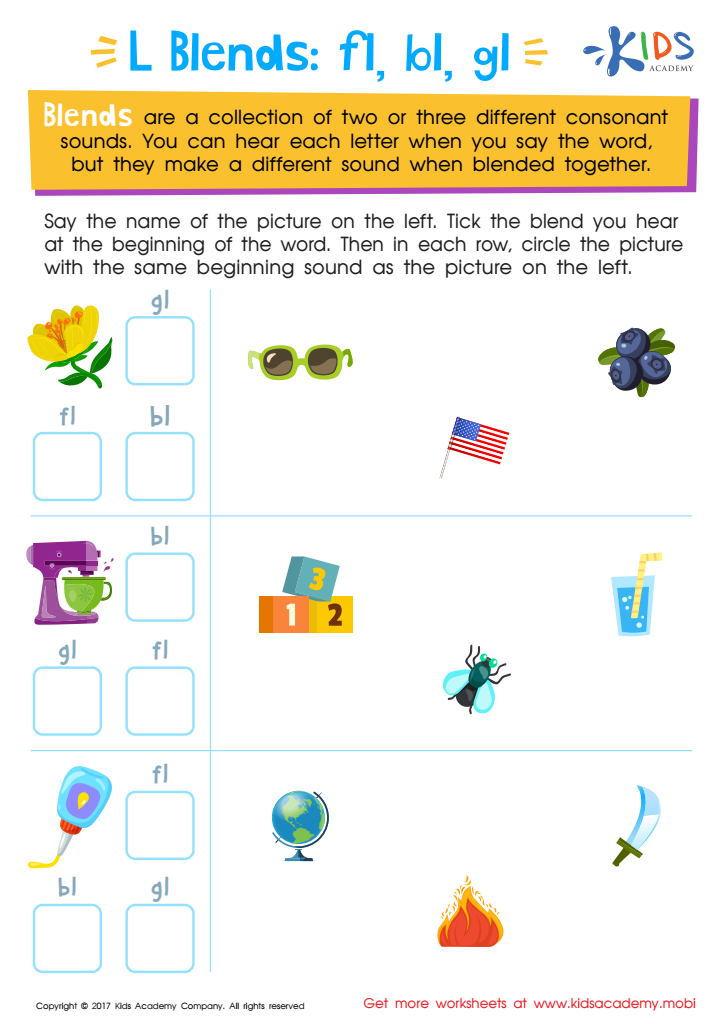

Blending Consonants: "Fl", "Bl" and "Gl" Printable
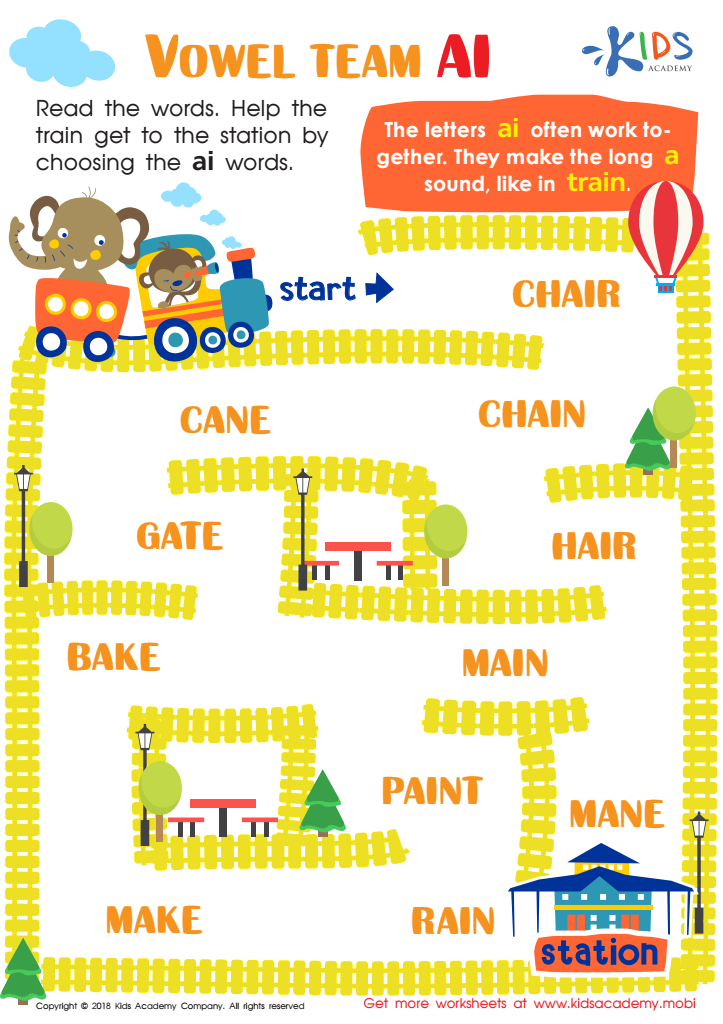

Vowel team ai Worksheet
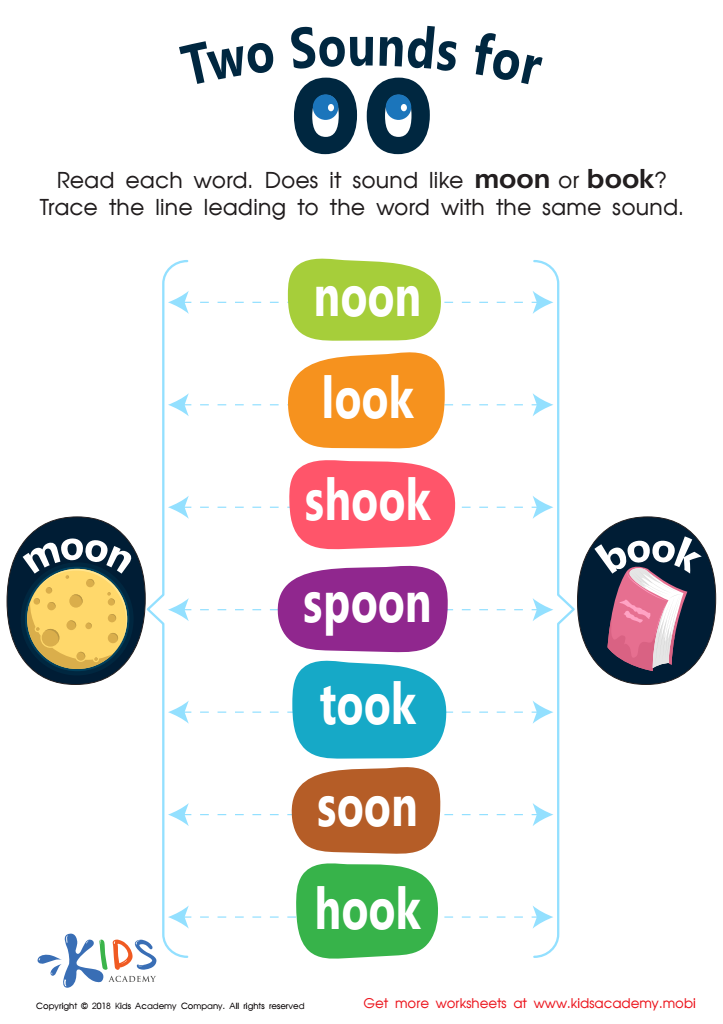

Two Sounds for OO Worksheet
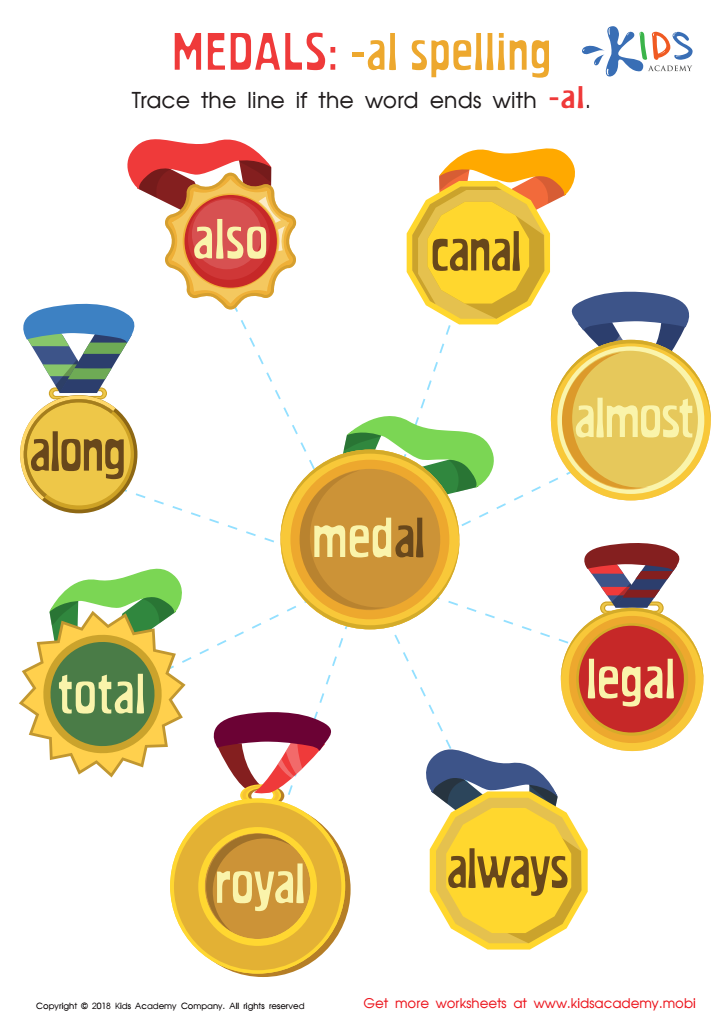

Medals: Al Spelling Worksheet
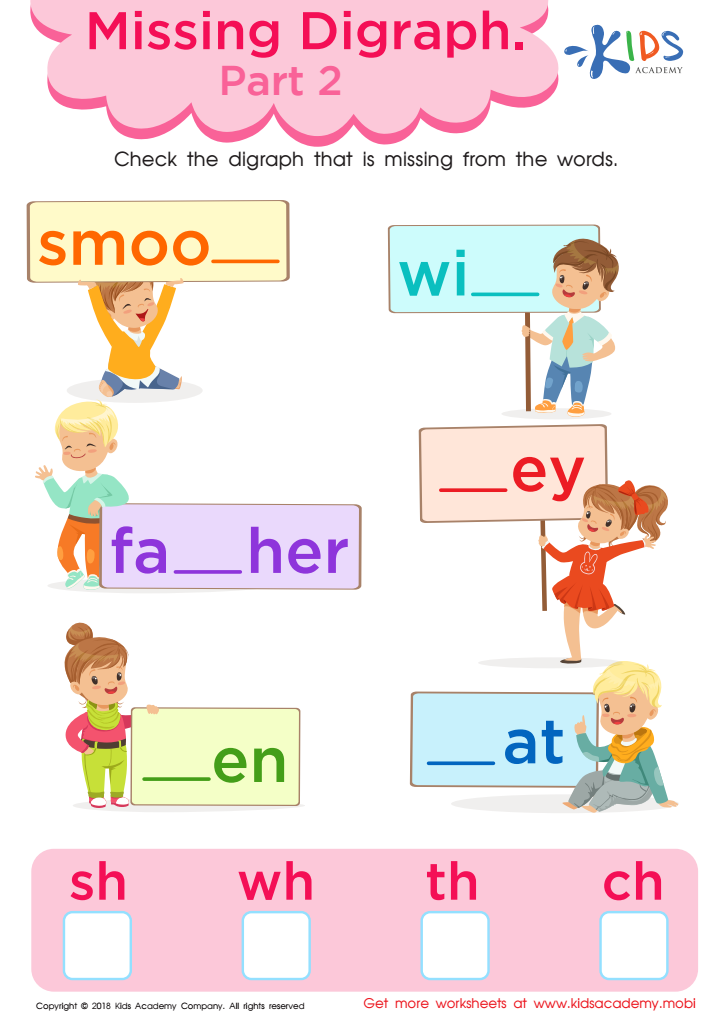

Missing Digraph: Part 2 Worksheet
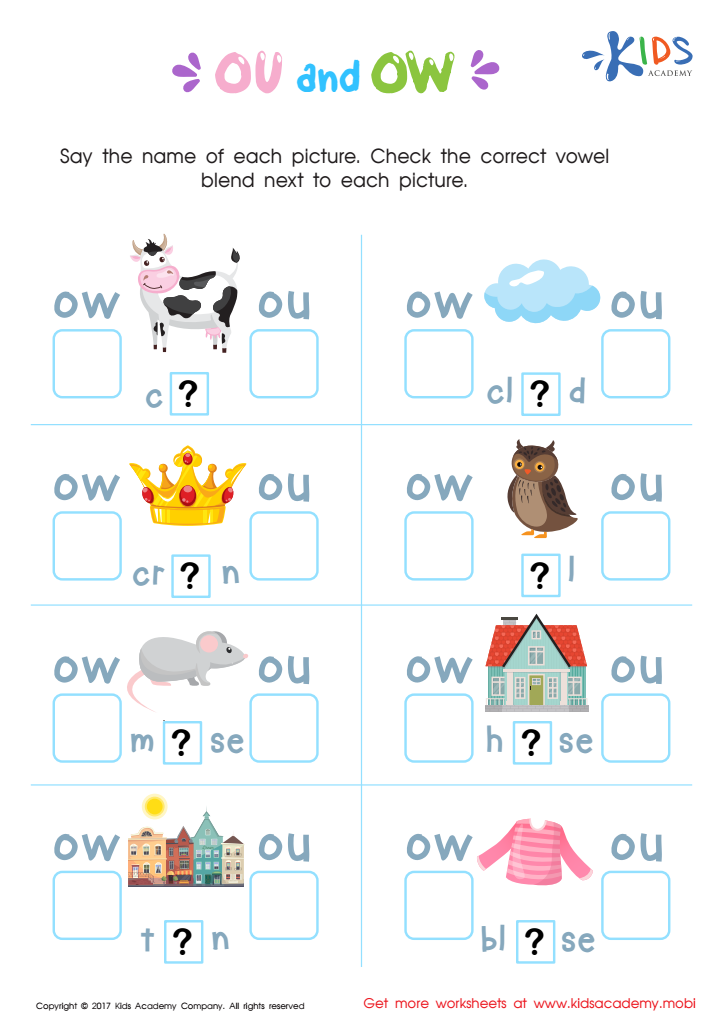

OU and OW Words Worksheet
Vocabulary expansion is crucial for children aged 7-9, as this is a key developmental stage for language acquisition and literacy. Normal two-letter phonics plays a significant role in this process, offering a foundation for reading and spelling more complex words. Understanding phonics helps children decode new words, boosting their confidence and enabling them to engage with a wider variety of texts.
Parents and teachers should care about phonics-based vocabulary expansion because it not only improves reading skills, but also enhances comprehension. When children can effectively sound out words, they are more likely to understand the meaning behind them, leading to richer conversations and improved communication skills.
Moreover, a strong vocabulary is linked to academic achievement across subjects, fostering critical thinking and creativity. In an increasingly competitive world, children equipped with robust language skills can express themselves better, participate actively in discussions, and appreciate literature and content explored in classroom settings.
By prioritizing normal two-letter phonics and vocabulary expansion, parents and teachers can support children's overall development, helping them become confident learners who are well-prepared for future academic challenges. Encouraging this foundation in early education can lead to lifelong benefits in literacy and learning.
 Assign to My Students
Assign to My Students









